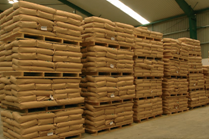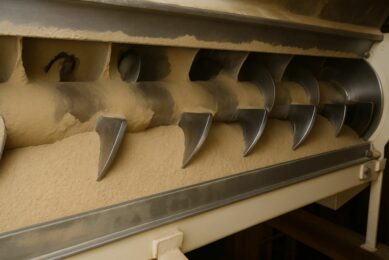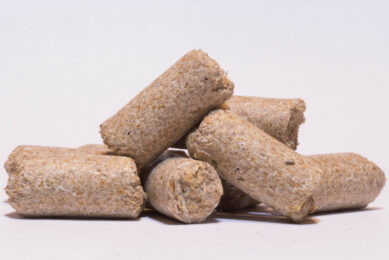Protecting stored feed against moulds and yeasts

New research from CaroTech (Carotenoid Technologies S.A.) in Spain with Vietnam’s Nong Lam University on Formycine® Gold Px shows a significant reduction in the progression of contamination of E. Coli mould and yeast up to 42 days after the pelleting process.
It’s well know that reducing pathogens in raw materials and finished feeds has a direct impact on animal well being and performance.
Pellet processing of feeds is one of the strategies to improve feed biosecurity, but this does not eliminate the problem entirely.
Even traces of bacterial, fungal, or viral contamination can multiply to pose significant sanitary and performance threats for the animal.
Study in Vietnam
In this study, Formycine® Gold Px (formaldehyde & propionic acid) was evaluated at two inclusion levels on feed contamination with E. coli, mould and yeast over 42 days after pelleting versus a control pelleted feed.
As expected, all contaminations showed growth beginning after the third week. However, Formycine® Gold Px significantly reduced the progression of contamination in all cases even up to 42 days.
These results are particularly pertinent in reference to the current economic environment, where most feed producers are trying to reduce batch costs with larger feed production batches stored for longer times.
In addition, in many countries finished feeds often take as many as 30 days to reach the farm destination. Therefore, the application of Formycine® Gold Px adds an additional measure of protection to pelleted feed, leading to cost-effective benefits for the feed producer and farmer.











